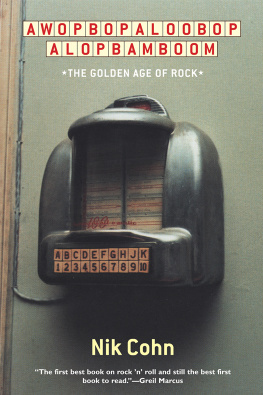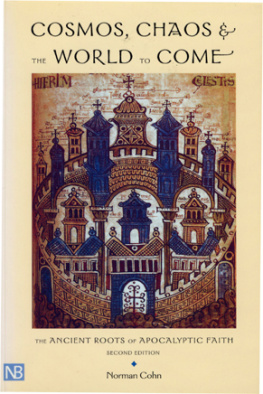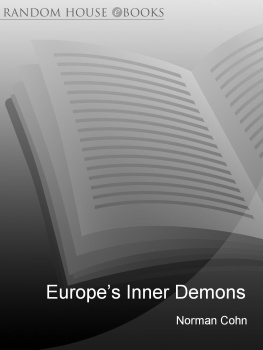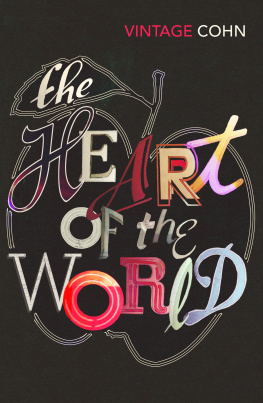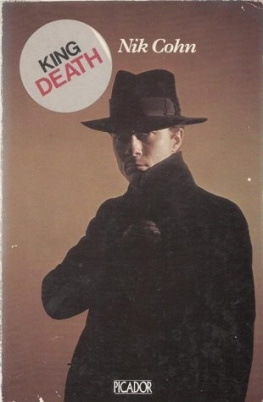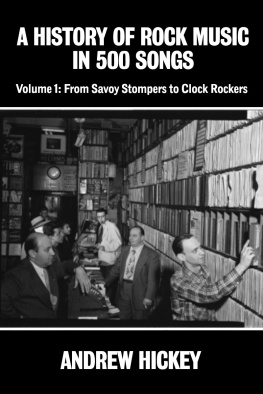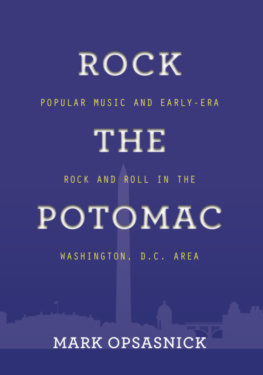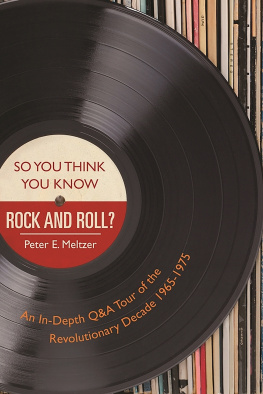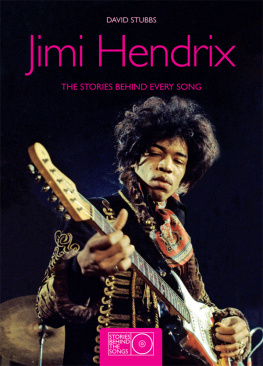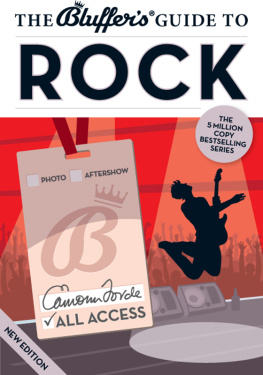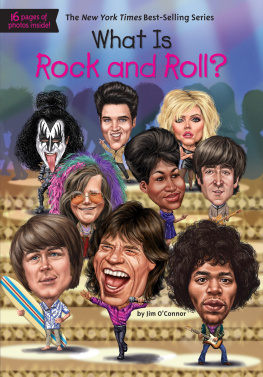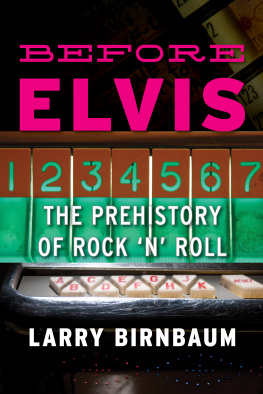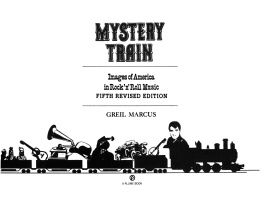
Nik Cohn
AWOPBOPALOOBOP
ALOPBAMBOOM
The Golden Age of Rock

GROVE PRESS
New York
To Jet Powers,
Dean Angel and
Johnny Ace
Copyright 1969 by Nik Cohn
Preface copyright 1996 by Nik Cohn
All rights reserved. No part of this book may be reproduced in any form or by any electronic or mechanical means, including information storage and retrieval systems, without permission in writing from the publisher, except by a reviewer, who may quote brief passages in a review. Any members of educational institutions wishing to photocopy part or all of the work for classroom use, or publishers who would like to obtain permission to include the work in an anthology, should send their inquiries to Grove/Atlantic, Inc., 841 Broadway, New York, NY 10003.
First published in 1970 in Great Britain by Paladin Press, in St. Albans, Herts, UK. Revised edition published by Paladin Press in 1973.
This edition is published by special arrangement with the Perseus Books Group
Published simultaneously in Canada
Printed in the United States of America
FIRST GROVE PRESS EDITION
Library of Congress Cataloging-in-Publication Data
Cohn, Nik.
Awopbopaloobop alopbamboom : the golden age of rock / Nik Cohn.
p. cm.
Originally published: New York : Da Capo Press, 1996 (reprint of the ed. published: England : Paladin, 1970 (1973 printing)).
Includes index.
ISBN 0-8021-3830-6
eSBN 978-0-8021-8983-7
1. Rock musicTo 1961History and criticism 2. Rock music1961-1970History and criticism. I. Title.
NL3534 .C636 2001
781.66'09dc212001046017
Grove Press
an imprint of Grove/ Atlantic, Inc.
841 Broadway
New York, NY 10003
01 02 03 04 10 9 8 7 6 5 4 3 2 1
Preface
I WROTE Awopbopaloobop Alopbamboom in the spring of 1968, shortly after my twenty-second birthday. Id been in love with rock for a dozen years and had written about it in both English and American magazines for the last four. I felt that I had met all the people I wanted to know, and said everything I needed to say. Time, I thought, to sum up my vision of rock and its culture in one last package, and then move on.
If this sounds offhand, it was. Rock in the late sixties was still a spontaneous combustion. Nobody thought in terms of long-term strategies; hanging on once the thrill had worn off would have been inconceivable. If anyone had suggested to me then that the Stones or the Who might still be wearily treading the boards in their fifties, Id have called for the men in white jackets. Hope I die before I get oldthat was the stuff. All I was doing in writing Awopbop was trying to get a jump on the mortician.
To that end, my English publisher rented me a house for seven weeks in Connemara on the west coast of Ireland and told me not to bother coming back without a completed manuscript. So I sat myself down at a kitchen table and wrote, ten hours a day, often halfway through the night as well.
In a sense it was a homecoming, a completing of the circle. Ireland was where I had grown up, and rock the main reason I had left. My own raising had been in the Protestant section of Derry, where Bill Haley and Elvis were not mentioned. Then one evening Id gone astray; found myself on the fringes of Bogside, the Catholic slum. Across the street I had heard Little Richard singing Tutti Frutti on a coffee-bar jukebox. Watched the local teen hoodsTeddy Boys, they were calledwith their duckass haircuts and drainpipe jeans, jiving in plain day. Had my first glimpse of sex, and danger, and secret magic. And I had never been healthy since.
What was it about the Teds that so overwhelmed me? Glamour, yes, and wildness. But something else besides, which stirred me even deeperthe force of self-invention. By all the logics of birthreligion, politics, economicsthese boys were nothing. Papist scum, delinquent flotsam and jetsam, with no future or hope. Yet that wasnt the way they strutted. Through the power of rock, they seemed transformed into heroes. In every flash of fluorescent sock or velvet cuff, every leer and flaunt of their pompadours, they beggared the fates. Made reality irrelevant.
It was a seductive picture.
Irresistible, in fact. For a ten-year-old weakling, class clown, mammas boy, and all-around loser, it offered nothing less than a second coming. From then on, I had no space or patience for my real self. What consumed me was a movie: Nik Cohn, Man or Myth ?
Easy enough to snigger now, from this safe and sober distance. At the time, however, my belief was absolute, unquestioning. I lost myself in Elvis, whom I took as my personal saviour. Hoarded pulp fanzines, publicity glossies, scratched and warped old 78s. Snuck into banned films and stole dirty books.
At fifteen I was out of Ireland, at sixteen out of school, and by seventeen down to London. It was 1963, the first year of the Beatles, and the cosmos seemed to shift by the day. Only months before, England had still been mired in post-war misery. No money, no flash; no hope of a free ride anywhere. Snotty youths like myself, high school dropouts with bad skin and worse attitudes, hadnt had a prayer. But She Loves You had changed everything. Suddenly, all potential employers were paralyzed by one recurring nightmarethe image of the wretched man who had turned down the Beatles at Decca Records. Better to get landed with a dozen no-talent bums, whole armies of degenerates and howling freaks, than to let the next John Lennon slide by unclaimed.
The feeding frenzy was not confined to rock alone. Fashion editors, book publishers, art directors, and film producers all went down with the same sickness. Suddenly, instead of a passport to oblivion, being a teenage fuck-up was the hottest ticket in town. So one day I was your British Rail representative at Hampstead Travel Agency, earning eight dollars a week, minus tax; the next, I had a job at The Observer, an up-market Sunday broadsheet, pontificating on Youth. Lunch at the Trat with Terence Stamp, dinner at Alvaros with Andrew Loog Oldham, breakfast in bed with... never mind whom. Taxis everywhere, free records and complimentary tickets, a new suit of clothes each Saturday, and never, but never, wear the same shirt twice.
None of this had come to me by plotting; all that Id done was get there first. The scene was already crammed to bursting with would-be musicians, photographers, hairdressers, and models, but as a writer, I had no competition. Scribes in the early sixties did not come in skintight velvet trousers and shades, their hair down to their shoulders; they certainly didnt type their weekly columns on the bare buttocks of a Lebanese snake-charmer. Or even pretend that they did.
Heady days. But not, by their nature, made to last. Even as I was pigging out on the moment, rock & roll was already changing. The world that I knew and adored was essentially an outlaw trade, run by a motley of adventurers, snake-oil salesmen, and inspired lunatics. But their time was almost over. With each passing season, the scene was becoming more industrial. Corporate fat cats and accountants were driving out the wild men. The new buzzword was product. It would not be long, I came to realize, before rock was just another branch of commerce, no more nor less exotic than autos or detergents.
By 68, my options were plain. Either I could keep the faith as laid down by those first Teddy Boys in Derry: stay true to rock as a doomed romance, a passionate beating against the tides, a moment. Or I would shortly be very bored. Rich, no doubt, and outrageously pampered. But a traitor at heart.
Next page
